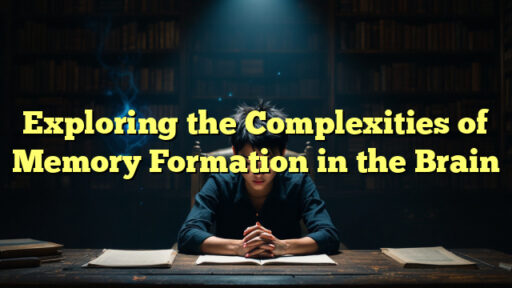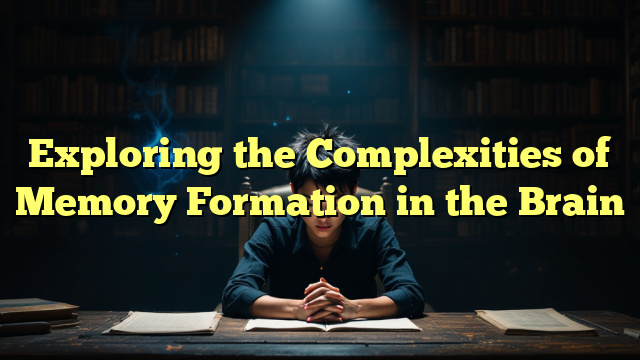Memory is a fascinating and complex phenomenon that plays a crucial role in our daily lives. From recalling past experiences to learning new information, memory formation is essential for our cognitive functioning. In this article, we will delve into the intricate processes involved in memory formation in the brain and the factors that influence it.
Neurobiological Basis of Memory Formation
Memory formation is a neurobiological process that involves the encoding, storage, and retrieval of information in the brain. The process begins with the encoding of information, which involves the conversion of sensory input into a form that can be stored in memory. This process primarily occurs in the hippocampus, a region of the brain known for its role in memory formation.
Once the information is encoded, it is stored in various regions of the brain, including the prefrontal cortex and the amygdala. The strength of a memory is determined by the connections between neurons, which form neural networks that store and retrieve information. With repeated activation, these connections become stronger, leading to the formation of long-term memories.
Types of Memory
There are different types of memory that are involved in various aspects of our lives. The two main categories of memory are short-term memory and long-term memory. Short-term memory is responsible for holding information for a brief period, while long-term memory stores information for an extended period.
Long-term memory can be further divided into episodic memory, which stores personal experiences, semantic memory, which stores facts and general knowledge, and procedural memory, which stores skills and habits. Each type of memory involves distinct neural pathways and mechanisms in the brain.
Factors Influencing Memory Formation
Memory formation is a complex process that can be influenced by various factors, including genetics, environment, and emotional state. Genetic factors can affect an individual's susceptibility to memory disorders, such as Alzheimer's disease, while environmental factors, such as learning and experience, can enhance memory formation.
Emotional state also plays a significant role in memory formation, as emotional experiences are more likely to be encoded and stored in memory. Stress and trauma can impact memory formation, leading to the development of post-traumatic stress disorder and other related conditions.
Conclusion
Memory formation is a complex and dynamic process that is essential for our cognitive functioning. Understanding the neurobiological basis of memory formation and the factors that influence it can help us improve our memory capabilities and enhance our overall cognitive performance. By exploring the complexities of memory formation in the brain, we can gain valuable insights into how our memories are formed and stored, leading to a deeper understanding of the workings of the human mind.
FAQs
Q: How can I improve my memory?
A: There are several ways to improve memory, including regular exercise, healthy diet, adequate sleep, and cognitive stimulation. Engaging in memory-enhancing activities, such as puzzles and games, can also help improve memory function.
Q: Can memory loss be prevented?
A: While some degree of memory loss is a normal part of aging, there are ways to reduce the risk of developing memory disorders. Maintaining a healthy lifestyle, staying mentally active, and managing stress can help prevent memory loss and cognitive decline.
Q: What role do neurotransmitters play in memory formation?
A: Neurotransmitters are chemical messengers that transmit signals between neurons in the brain. Key neurotransmitters, such as dopamine and serotonin, play a crucial role in memory formation by modulating neural activity and strengthening synaptic connections.
Unlock Your Mental Potential




